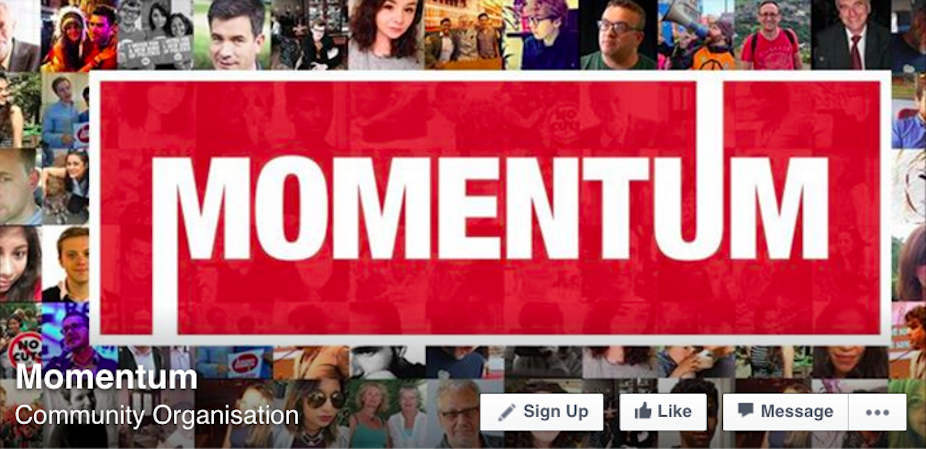The campaign group Momentum was born out of Jeremy Corbyn’s decision to run for the Labour leadership. The group, which sat outside of the party, garnered its supporters from organisations and individuals which had campaigned against Labour in the preceding general election.
Left Unity, The Green Party, and the remnants of the old Campaign for Labour Party Democracy group threw their weight behind Corbyn. They saw his leadership as an opportunity to reverse the direction the party had taken under Neil Kinnock, John Smith, Tony Blair and Gordon Brown. His would be a leadership more likely to reflect their own political views.
Comparisons have been made between Momentum and groups such as Militant Tendency, which gained a stranglehold of sections of the Labour Party in the 1970s and half of the 1980s.
Militant, which was formed in 1964, owed its philosophical basis to a literal interpretation of Marx, Engels, Lenin and Trotsky. It functioned outside mainstream politics, pushing up through the rank and file and through the constituency Labour parties.
But comparisons between Momentum and Militant are inadequate. Militant was simmering in the background of left-wing politics for a number of years before making a substantial impact; Momentum appeared as a result of a democratic Labour election. Indeed, the creation of Momentum was enabled by the new Labour leadership. Militant was created to present a new left interpretation of the decline of capitalism ahead of the emergence of a new socialist utopia. The two are very different.
Momentum is also less about promoting a socialist society (although that is a belief) and more about changing the Labour Party into a new left-wing force in British politics. It organises events, provides platforms for speakers in universities and argues it is supportive of the Labour Party electorally.
It also strives to promote the interests of minority groups in British society as a means of increasing their representation within the Labour Party. Unlike the Militant Tendency, Momentum does not revolve its objectives exclusively around critiquing capitalism. Rather, its conception of socialism is more about bringing it about through grassroots activism.
Looking to 2020
Momentum is, at heart, a campaign to unite the left around the Labour Party. The response from moderates has been to establish counter-campaigns such as Open Labour, which aim to protect the gains Labour made during the years before Corbyn became leader.
Groups such as these argue Corbyn and Momentum detach Labour from the vital centre ground, where, they argue the majority of the electorate resides. By seeking to prevent Momentum from pushing for a more left-wing Labour Party, the moderates want to continue appealing to those voters who are disengaged from the political process yet vote based on a range of real world issues. These include employment, stability of the economy, and a convincing and credible leadership.
Moderates argue Momentum shows a disregard for these issues. Momentum and its supporters point to the mandate secured by Corbyn in August 2015 when he was elected party leader. They argue his significant majority shows that he does appeal to voters and can win elections.
Momentum has certainly changed the dynamic within the Labour Party. Coming from the result of Corbyn’s election as leader of the Labour Party, it is hard to compare it to Militant Tendency or the Campaign for Labour Party Democracy. The controversies surrounding it, however come from its appeal to those that rest within the Militant tradition, such as Left Unity, which have little or nothing in common with the Labour Party.

